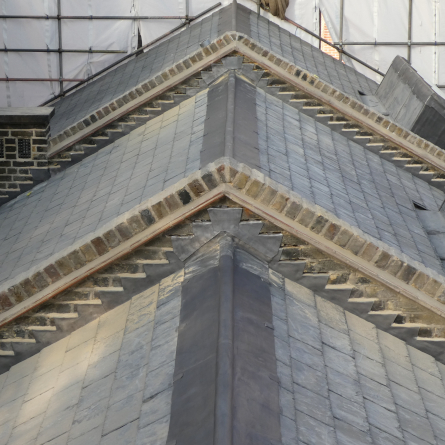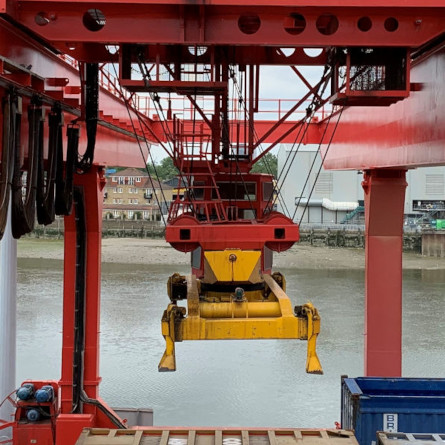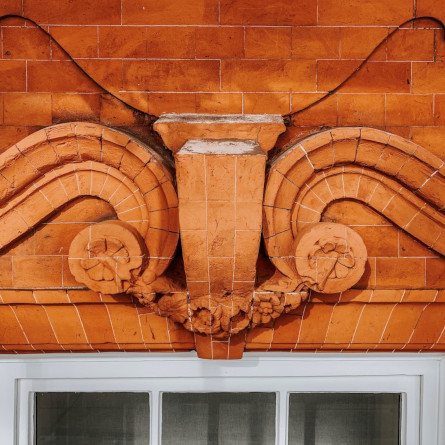What Happens when Your Fail to Serve a Party Wall Notice
If your project involves work on a shared wall with a neighbour, known as a party wall, you are legally obligated to inform them through a formal notice.
For a general overview of party wall considerations, we recommend consulting our guide for party wall advice. If you’re specifically interested in what happens when you fail to serve a party wall notice, please continue reading for detailed information tailored to these projects.

If you’re planning construction work that involves a shared wall, boundary or structure with your neighbour, you may need to serve a party wall notice. This crucial step, often overlooked by property owners, can have significant consequences if neglected.
A party wall notice is a formal document informing your neighbour about proposed work that might affect their property. It’s a legal requirement under the Party Wall Act 1996 in England and Wales, designed to protect the interests of both property owners and prevent disputes.
Failing to serve this notice isn’t just a minor oversight—it can lead to serious legal, financial and practical repercussions.
When you neglect to serve this notice, you risk facing several potential outcomes:
Legal action: Your neighbour could seek an injunction to halt your work, potentially leading to costly delays and court fees.
Disputes and damaged relationships: Failing to communicate properly about your plans may strain relations with your neighbours.
Difficulty selling your property: Lack of proper documentation regarding party wall work can complicate future property sales.
Liability for damages: If your work causes damage to the neighbouring property, you may be held responsible without the protection a party wall agreement provides.
Retroactive compliance costs: You might need to pause work to retroactively comply with party wall procedures, incurring additional expenses and delays.
To avoid these issues, it’s crucial to understand your obligations under the Party Wall Act and serve proper notices when required. Consulting with a professional party wall surveyor can help ensure you follow the correct procedures and maintain good relationships with your neighbours.
Legal Requirements
Under the Party Wall Act, a notice is required in several scenarios: when you plan to build on or at the boundary of your property, when you intend to work on an existing party wall or structure, or when you’re excavating near a neighbouring building. The notice must be served at least two months before the planned start date for building work, or at least one month for excavation work.
The Act is designed to protect both the building owner (the person carrying out the work) and the adjoining owner (the neighbour). It provides a clear process for resolving disputes and ensuring that work is carried out fairly and safely.
The notice should include details of the proposed work, the start date, and any drawings or plans that help explain the project. It’s important to note that even if you have planning permission or building regulations approval, you still need to comply with the Party Wall Act separately.
What are the consequences of failing to supply a Party Wall notice?
Neglecting to serve a Party Wall Notice might initially appear beneficial for a building owner eager to commence construction. However, failing to adhere to the Party Wall Act can backfire, posing several significant risks:
Loss of Legal Access: By not serving a notice, the building owner forfeits the legal protections afforded by the Act. This includes the right to perform necessary works and enter the neighbour’s property to carry them out. Without these rights, any attempt to do so could be deemed trespassing or a nuisance, leading to legal complications.
Stopping Work: From a legal standpoint, your neighbour has the right to seek an injunction to stop your work. This can be done through the courts, and if granted, you’ll be legally required to cease all construction activities immediately. The court may also order you to serve the notice retrospectively and follow the proper procedures before allowing work to resume.
In some cases, you might even be required to undo any work already completed. Project delays are another major consequence of this. If your work is halted due to legal action or disputes, it can lead to long setbacks in your timeline which results in increased costs due to extended equipment rentals, labour costs and potential penalties from contractors.
Lack of Evidence: The Act enables the building owner to document the condition of the adjoining property before starting any work. This schedule of condition can be crucial in defending against claims of damage by the neighbour. Without this documentation, the building owner is vulnerable to unverified allegations of causing damage.
Increased Costs: Handling disputes outside the framework of the Act can be both costly and time-consuming. The Party Wall Act provides a clear procedure for resolving disputes, which can streamline the process and reduce delays. This is particularly important for projects with tight deadlines or those dependent on development finance. If your neighbour is forced to file a common law claim due to the absence of a notice, the building owner might end up paying substantial legal costs on an indemnity basis.
Delays to the Project: Resolving disputes and going through the proper party wall procedures retrospectively can be time-consuming, further delaying your project. Your relationship with your neighbours may also suffer. What might have been an amicable situation can quickly turn contentious when proper procedures aren’t followed.
Rectifying the Situation
If you find yourself in the position of having failed to serve a party wall notice, all is not lost, but prompt action is crucial. The first step is to cease any ongoing work immediately to prevent further complications. Then, you should serve the notice retrospectively, even if work has already begun or been completed. This demonstrates your willingness to follow proper procedures, albeit belatedly.
Alongside this, open and honest communication with your neighbours is vital. Explain the situation, apologise for the oversight and inconvenience, and express your commitment to resolving the issue amicably.
Your neighbours are more likely to be understanding if they’re approached respectfully and if you show a genuine desire to rectify the mistake. However, if negotiations prove difficult or your neighbours are unwilling to discuss the matter, seeking professional mediation can be a valuable next step. A party wall surveyor can help facilitate discussions, provide expert advice, and work towards a resolution that satisfies both parties.
Remember, while rectifying the situation can be challenging and potentially costly, it’s generally far less problematic than ignoring the issue and risking legal action from your neighbours. For expert advice on all Party Wall matters, please contact the team at Squarepoint Chartered Surveyors, London’s leading party wall surveyor.
Download Our PDF Guide To Party Walls
The Squarepoint Party Wall Guide is essential reading for anyone who owns or lives in a property that shares a party wall with another property.
Download our PDF guide to all Party Wall Matters. Topics include:
What is a Party Wall?
What is the Party Wall Act?
What is a Party Wall Notice?
What is a Party Wall Dispute?
What is a Party Wall Award?
When Do You Need a Party Wall Surveyor?





